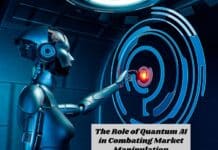In today’s fast-paced business environment, the quest for greater efficiency and productivity is relentless. At the forefront of this pursuit is integrating Artificial Intelligence (AI) into the workplace. AI’s ability to streamline processes, automate routine tasks, and provide intelligent insights redefines how work is done. And we can clearly see how AI has progressed with apps like ChatGPT and LLM App Evaluation systems. This article delves into how AI transforms task efficiency and the future for AI-assisted work environments.
AI: The Game-Changer in Task Management
The impact of AI on task management is profound. AI’s capability to analyze large data sets and identify patterns enables businesses to make informed decisions swiftly. From automating administrative tasks to providing predictive analytics, AI makes work smarter, not just faster.
Automating Routine Tasks
One of the most significant advantages of AI in the workplace is automation. Repetitive and time-consuming laborious tasks including data entry, scheduling, and email sorting can be efficiently handled by AI, freeing up valuable time for employees to focus on a lot of complex and to a certain extent creative tasks. This not only boosts productivity but also enhances job satisfaction by reducing monotony in daily work.
Enhancing Decision Making
AI’s ability to understand and analyze vast amounts of data at incredible speeds empowers businesses to make better-informed decisions. With advanced algorithms, AI can provide insights and forecasts that might not be apparent through manual analysis, aiding in strategic planning and risk management.
The Evolution of AI in the Workplace
AI in the workplace has evolved from basic automation to more sophisticated, intelligent applications. The development of machine learning and natural language processing has enabled AI systems to learn, adapt, and interact in more human-like ways.
From Automation to Intelligence
Initially focused on automating simple tasks, AI’s role in the workplace has expanded to include complex problem-solving and decision-making support. AI systems can now analyze trends, predict customer behavior, and even provide recommendations for business strategy.
AI Assistants: A New Era of Productivity
The advent of AI assistants has further revolutionized task efficiency. These AI-powered tools can manage calendars, set reminders, prioritize emails, and even draft responses.
They act as personal productivity assistants, helping manage time and tasks more effectively. An example of this is the AI assistant developed by Spike, which integrates email, chat, and calendars, using AI to optimize communication and task management.
The Human-AI Collaboration
The integration of AI in the workplace is not about replacing humans but rather augmenting human capabilities. AI excels in handling data-driven tasks, while humans bring creativity, emotional intelligence, and ethical judgment to the table.
Complementing Human Skills
AI tools are most effective when they complement human skills. For instance, where on one hand AI can delicer data-driven insights, human employees are needed to interpret these insights within the context of the business and make strategic decisions.
Ethical Considerations and AI
As AI becomes more ingrained in business processes, ethical considerations around its use become increasingly important. Ensuring AI’s decisions are fair, unbiased, and transparent is crucial in maintaining trust and ethical standards in business operations.
Overcoming Challenges and Embracing AI
While AI offers numerous benefits, its integration into the workplace also presents challenges. Understanding and overcoming these challenges is key to leveraging AI effectively.
Addressing Skill Gaps
The rise of AI has led to a demand for new skills in the workforce. Employees must be trained to work alongside AI tools, which involves understanding how to interpret AI-generated data and insights.
Ensuring Data Security
With AI handling large amounts of sensitive data, ensuring the security and privacy of this data is paramount. Businesses must invest in robust cybersecurity measures to protect against data breaches and cyber-attacks.
The Future of AI in the Workplace
Looking ahead, AI’s role in the workplace is set to grow even more significant. Advancements in AI technology will continue to enhance task efficiency and open new avenues for innovation.
Predictive Analytics and Personalized Experiences
Future AI applications are likely to focus on predictive analytics, offering even more personalized and proactive assistance in task management. AI could predict individual employee needs, optimize workflows, and even identify potential challenges before they arise.
Seamless Integration Across Platforms
As AI technology advances, its integration across various business platforms and tools will become more seamless. This will lead to a more interconnected and intelligent work environment, where data and insights are shared fluidly across different applications.
Conclusion
The integration of AI into task management and workplace operations marks a significant shift in how businesses operate. By automating routine tasks, providing intelligent insights, and enhancing decision-making, AI is enabling smarter, more efficient work.
However, leveraging AI effectively requires addressing skill gaps, ensuring ethical use, and maintaining data security.
As businesses continue to embrace AI, it holds the promise of not just optimizing task efficiency but also driving innovation and growth in the future. The key to success lies in finding the right balance between leveraging AI capabilities and fostering human talent and creativity.
Image by rawpixel.com on Freepik





